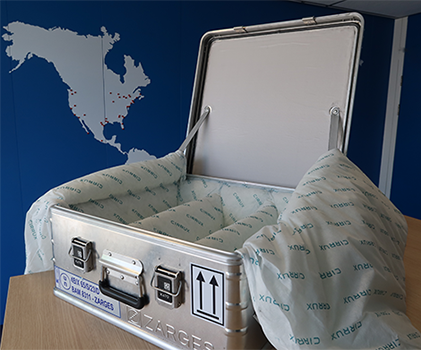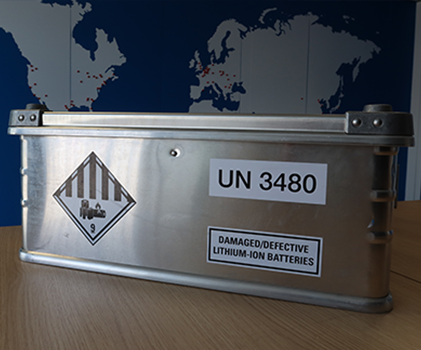Lithium Batteries Transport
Mainfreight is experienced in handling and transporting lithium batteries in a safe way.
(Defective) lithium batteries transport
Transporting defective batteries is not always easy. That is why our experienced team is happy to assist you! The production and use of lithium batteries has grown explosively in recent years. Lithium batteries are used in electric bicycles, cars, telephones and electronic toys, among other things. The batteries have the advantage that they are environmentally friendly, can be charged in the meantime, and therefore have a longer lifespan. However, it is and remains very important to pack and qualify lithium batteries correctly.Defective. What do I do?
It is possible that a lithium battery no longer works properly and needs to be returned. Special packaging must be used for the transport of these batteries. As the sender of the batteries, you are always responsible for sending the batteries correctly. As defective batteries are classified as 'unstable', they should be sent under packing instruction P908. If the battery is not properly packed and something happens to it, you as the sender are responsible and will have to compensate for the damage caused. The insurer will also check how the battery has been shipped, and if this is not done correctly, this can result in unpleasant situations.Mainfreight Special Services as your solution
To prevent situations like these, Mainfreight Special Services is equipped with the right fire-resistant cases and containers that ensure that defective batteries can be safely transported to the supplier. Because the batteries are in the non-flammable and non-conductive cushions, the batteries are sufficiently sealed, meaning that the flames will not spread to adjacent batteries. Our cases comply with packing instructions P908 and P909, and our trained drivers always carry out a pre-check before loading the battery.


FAQs
Does lithium classify as ADR?
How does a fire-resistant case and/or container work?
How does Mainfreight Special Services collect a defective battery?
What does the driver do if smoke comes out of the suitcase and/or container?
What is the difference between P903 and P908/P909?
What risks can arise with the shipment of lithium batteries?
What responsibilities do I have as a sender of lithium batteries?
Does Mainfreight Special Services have trained drivers for these type of shipments?

For all your questions about transport of lithium batteries. We are here to support!
Antonie Moonen | Team Leader
T: +31 314 678 237
E: antonie.moonen@mainfreight.com
Single point of contact
One single point of contact, for all your European shipments, who understands your business. This combined with pro-active communication.
Distribution network
Your products are controlled through our comprehensive European partner network ensuring high efficiency in deliveries to any country in Europe.
Local expertise
Our local branch network means we understand your business, make fast decisions and recognise opportunities which simply aren’t apparent when doing business at a distance.
